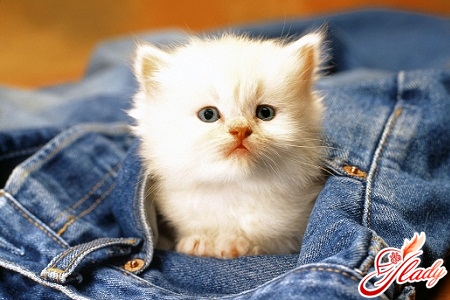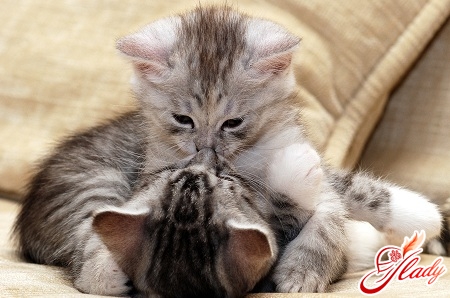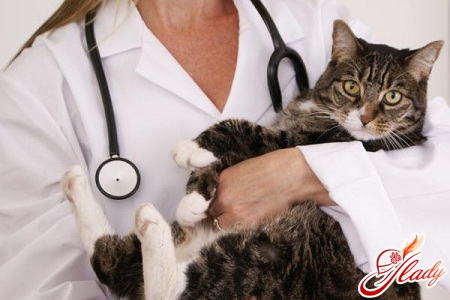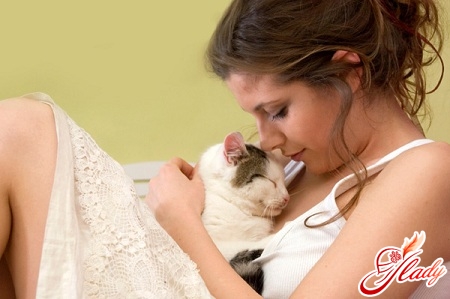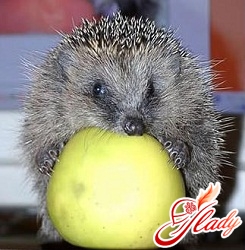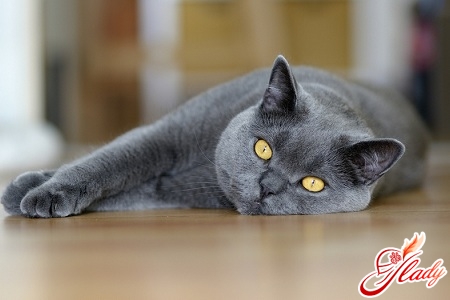 Of course, we love our pets,regardless of their breed or non-pedigree, material or breeding value, bad or docile character, size and appearance. But you must admit that there are breeds of cats and dogs that require special care. And if you intend to provide your pet with a show career or actively participate in breeding a breeding line, then the appearance and health of the animal must be impeccable. Among cats, there are many aristocrats who require increased attention from their owners. Among them are the beloved British. Caring for cats of this breed cannot be called something very special, but there are still some nuances here. So what kind of cats are they and how to care for them? Let's figure it out.
Of course, we love our pets,regardless of their breed or non-pedigree, material or breeding value, bad or docile character, size and appearance. But you must admit that there are breeds of cats and dogs that require special care. And if you intend to provide your pet with a show career or actively participate in breeding a breeding line, then the appearance and health of the animal must be impeccable. Among cats, there are many aristocrats who require increased attention from their owners. Among them are the beloved British. Caring for cats of this breed cannot be called something very special, but there are still some nuances here. So what kind of cats are they and how to care for them? Let's figure it out.
Care of hair (grooming)
Wool is the first thing that will require from youincreased attention, and for which constant care will be needed. The British have their own characteristic features of the breed. The fact is that dense plush British cats are covered with two-layered fur. It is the dense downy undercoat that makes their fur so stuffed, and the long guard hairs, which are much thinner, provide the fur with shine and silkiness. By the way, one of the important conditions for grooming the fur is proper and balanced nutrition. If the animal receives a sufficient amount of calcium, microelements and vitamins with food, then its fur will look impeccable. However, proper nutrition alone is not enough. Additional grooming procedures are also needed. Two or three times a week, the cat must be combed with a special massage comb, which is called a slicker brush. This is not even a comb, but a brush that allows you to comb out dead hair and simultaneously give the animal a massage. First, you need to comb the back, moving the slicker brush in the direction of the hair growth, then the cat is combed against the hair. Then comb the sides, and then move on to the neck and cheeks. Here, the fur is combed out with neat short movements in the direction of the muzzle (against the fur). By the way, British cats are one of the few breeds whose representatives happily tolerate this procedure and do not mind at all when they are combed against the fur. After combing, dry shampoo (sold in specialized stores) or grooming powder should be applied to the fur. Both shampoo and powder should be applied to dry fur, rubbed in, and then the animal should be combed out again, removing the cosmetic product along with dust and grease. After such combing and dry cleaning, the fur of the British becomes shiny and voluminous. Water procedures are indicated for the British only in case of obvious necessity, that is, if the animal really gets dirty. But even if such a necessity exists, washing should not be carried out more than twice a year, otherwise it will have a bad effect on the condition of the fur. If you still decide to wash your Briton, then use a special shampoo for this. What is important for purebred cats is that the shampoo type matches the coat color, which is usually indicated on the label. For British cats of chinchilla color and silver marble color, use shampoo for white coat. When bathing, be sure to ensure that water does not get into the ears and soap does not get into the cat's eyes. By the way, for safety, you can plug the ears with cotton swabs (if the cat does not protest). The water for washing should not be hot under any circumstances. The maximum permissible temperature is 40 degrees. After washing, wrap your cat in a towel, blot excess water and transfer the animal to the bed. There is no need to rub the coat vigorously - the cat will cope with this on its own.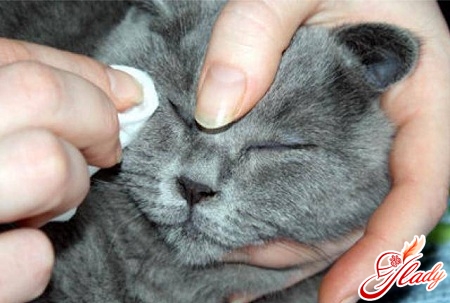
Care for the ears, eyes and teeth
In general, cats are quite clean.However, even with their pathological tendency to constantly wash and clean themselves, the result of hygienic procedures is not always satisfactory. Oddly enough, the muzzle and ears remain hard-to-reach areas of the cat's body for cats, which require more thorough care. Therefore, at least a couple of times a week, it is necessary to examine the animal's ears and clean them if necessary. First, wipe the inner surface of the auricle with a slightly damp cotton pad, and then remove dirt and sulfur in the curls and folds with a cotton swab. A healthy cat's ears should remain clean, and the dirt accumulating in them should not emit an unpleasant odor. For prevention, it is advisable to use a special ear cleaning liquid, and if there is a bad smell coming from the ear, then you should immediately contact a veterinarian. There is no need for careful eye care for British cats. As a rule, the cat monitors the cleanliness of its eyes on its own. However, you can wipe the eyes with a damp cotton pad once a day. This is especially true for kittens and young animals that are not yet experienced enough in personal hygiene, and dark discharge appears in the corners of their eyes after sleep. The eyes are wiped from the outer corner to the animal's nose, wetting a cotton pad with boiled water or tea leaves. Cat dental care is also necessary. This procedure is more of a preventive nature, because over time, tartar forms on cat teeth. And this, in turn, can lead to disease and tooth decay. The fact is that plaque from food debris and salts contained in cat saliva settles on the teeth, accumulates and gradually hardens, turning into that very tartar. By the way, only domestic cats are susceptible to this affliction - wild animals use natural "toothpicks". Brush your cat's teeth once or twice a month. Firstly, you can use a special toothpaste and brush (sold in a pet store) or use improvised means. For example, first wipe the cat's teeth with a cotton ball soaked in red wine, then apply a paste of baking soda and brush it off with a soft toothbrush. If your British cat stubbornly refuses to brush its teeth, hides or shows aggression, then use special dry food for this purpose or give the cat a marrow bone to chew on (they, like dogs, love it!)
Care of claws
The British cat's claws are not particularly special,but, nevertheless, they require care, and claws cannot be ignored. A cat living in a city apartment is deprived of the opportunity to naturally grind down its claws, which, by the way, are constantly growing. This explains the irrepressible desire of cats to sharpen their claws on any surface convenient for them. They do not sharpen them, making them sharp, but grind them down, shortening them. Therefore, firstly, provide the animal with such an opportunity by purchasing or equipping a special scratching post. If your British cat categorically refuses to use the device prepared for it, then you will have to trim its claws. This should be done no more than twice a month, shortening them by half the entire length. It is advisable to use a special claw cutter or resort to the services of a veterinarian, since with inept handling it is easy to damage the living part of the claw or split it, which will lead to the appearance of a wound and further inflammation and suppuration.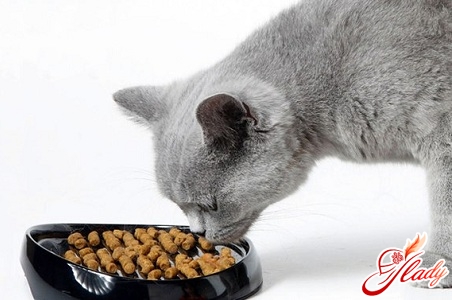
Feeding
Proper nutrition is also a kind ofcat care, because it largely depends on the general condition of the animal and its appearance. For good health, well-being and an impeccable appearance, a British cat needs not only a balanced diet, but also a certain regime. Do not forget that the British are dense and massive predators, whose main food should be protein food. For your cat's diet, you can use the scheme developed in one of the British breeding nurseries. So, experts recommend the following schemes. For kittens from two to four months
For cats aged four months and older
It is natural that the cat has a bowl of clean watershould always be. Of course, the proposed scheme is not a guide to action and not the only possible option for a diet. Cats, like people, have different taste preferences. Therefore, you can make a menu for your pet yourself, including fermented milk products, vegetables and fruits, cereals and fish. But you must know and remember constantly what cats of any breed cannot be fed. So, you cannot include the following products and ready-made food in your cat's diet.
- Ready-made food for dogs, as well as specialized sorts of forages not for their intended purpose. That is, you can not give the cat food for pregnant cats, and for adult animals feed for kittens.
- Bones (except brain beef for cleaning teeth). Bones from a bird or fish can injure the intestines, get stuck in the esophagus and even cause choking.
- River or raw fish. It is proved that the use of fish so beloved by cats disrupts the work of their urinary system and promotes the formation of kidney stones. If you give fish to your cat, then it should be done infrequently and give preference to marine lean fish in a boiled form.
- Fresh milk, butter, cheese. All this can cause frustration of the intestines with unpleasant consequences.
- Smoked, fried, pickled,canned, spicy, sweet, fatty, spicy, salty foods. In short, everything that we use most often for cooking for ourselves. Food from our table for cats is simply dangerous!
And most importantly, be guided by three main principlesprinciples of feeding your Briton: consistency, separateness and naturalness. Do not forget that only proper nutrition and careful care will help maintain the health of the cat. But only a healthy and well-groomed animal is able to make a show career or become a progenitor or continuer of a breeding line. However, if your cat is not of elite blood and does not have an impeccable appearance, then you still need to take care of it. After all, we are responsible for those we have tamed. We advise you to read:




